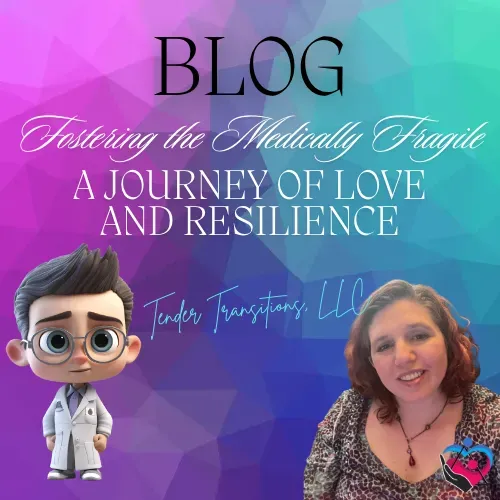Safe and Appropriate Foster Care: Ensuring a Nurturing Environment for Every Child
Foster care is a vital service that provides temporary care and protection to children who cannot remain in their biological homes. The core principle of foster care is to ensure the safety, well-being, and development of these children during a challenging period in their lives. To achieve this, it's essential to establish and maintain safe and appropriate foster care environments. This blog post explores key aspects of safe and appropriate foster care, including creating a secure environment, meeting basic needs, and fostering emotional and psychological well-being.
Creating a Safe Physical Environment
Home Safety:
The foundation of safe foster care starts with a secure physical environment. Ensure that your home meets basic safety standards by conducting regular inspections to identify and address potential hazards. This includes securing heavy furniture to walls, covering electrical outlets, and keeping toxic substances and sharp objects out of reach. Install smoke detectors, carbon monoxide detectors, and fire extinguishers, and create a fire escape plan that is reviewed and practiced regularly.
Childproofing:
Childproofing is crucial, especially if fostering infants or young children. Use safety gates to block off stairs and dangerous areas, and install window guards to prevent falls. Keep small objects and choking hazards out of reach, and ensure that all medications, cleaning supplies, and other potentially harmful substances are stored securely.
Safe Sleeping Arrangements:
Safe sleeping practices are essential for all children, particularly infants. Use a crib or bassinet that meets current safety standards and place it in the caregiver's room to monitor the child. Avoid placing soft bedding, toys, or pillows in the crib, and always place the baby on their back to sleep. For older children, ensure that their beds and sleeping areas are safe and free from hazards.
Meeting Basic Needs
Nutrition and Health:
Providing a nutritious diet is fundamental to a child's well-being. Ensure that children have access to balanced meals and snacks that meet their dietary needs. If a child has specific dietary restrictions or medical conditions, work with healthcare professionals to create and maintain a suitable meal plan. Regular medical check-ups, vaccinations, and dental care are also essential to maintain the child's overall health.
Hygiene and Personal Care:
Maintain high standards of hygiene to support the child's physical health and comfort. This includes regular bathing, brushing teeth, and ensuring that the child has access to clean clothing and bedding. For children with special needs or medical conditions, follow any specific personal care routines recommended by healthcare providers.
Educational and Recreational Needs:
Foster care should also address educational and recreational needs. Ensure that children have access to educational resources and opportunities, such as school, tutoring, and extracurricular activities. Encourage their interests and provide safe spaces for play and recreation, which are important for their development and emotional well-being.
Emotional and Psychological Well-being
Providing Stability:
Stability is a critical component of foster care. Establishing routines and consistent rules helps create a sense of security and predictability for the child. Consistent daily routines, such as regular meal times, bedtimes, and activities, contribute to a stable environment that fosters a sense of normalcy.
Building Trust and Attachment:
Building a trusting relationship with a foster child is essential for their emotional development. Show empathy, understanding, and patience as the child adjusts to their new environment. Encourage open communication and provide emotional support to help the child process their feelings and experiences.
Addressing Trauma and Behavioral Issues:
Many children entering foster care have experienced trauma or adverse experiences. It’s important to be aware of signs of trauma and seek professional support if needed. Working with therapists, counselors, or social workers can provide valuable guidance in addressing behavioral issues and supporting the child's emotional healing.
Training and Support for Foster Parents
Ongoing Training:
Foster parents should receive ongoing training to stay informed about best practices and to develop skills for managing various aspects of foster care. Training topics may include child development, trauma-informed care, behavioral management, and first aid. Staying updated on new information and techniques ensures that you can provide the best care possible.
Support Networks:
Building a strong support network is crucial for foster parents. Connect with local foster care organizations, support groups, and other foster parents to share experiences, seek advice, and gain emotional support. Engaging with a community of individuals who understand the challenges and rewards of fostering can provide valuable resources and encouragement.
Self-Care:
Self-care is vital for maintaining your own well-being as a foster parent. Caring for a child with complex needs can be demanding, and it's important to take time for yourself to recharge and manage stress. Prioritize activities that help you relax and maintain a healthy balance between caregiving and personal life.
Ensuring Compliance with Regulations
Adhering to Standards:
Foster care agencies and state regulations set specific standards and requirements to ensure the safety and appropriateness of foster care environments. Familiarize yourself with these regulations and ensure that your home and caregiving practices comply with them. Regularly review and update any necessary certifications, licenses, and training.
Periodic Inspections:
Expect periodic inspections and home visits from agency representatives or caseworkers. These visits are designed to ensure that the home environment remains safe and suitable for the child. Use these opportunities to address any concerns, make necessary adjustments, and demonstrate your commitment to providing quality care.
Conclusion
Safe and appropriate foster care is essential for providing a nurturing and supportive environment for children in need. By focusing on creating a secure physical environment, meeting basic needs, supporting emotional well-being, and engaging in ongoing training and support, foster parents can make a significant positive impact on the lives of the children they care for. The dedication and commitment to maintaining high standards in foster care contribute to the overall goal of helping children thrive and find stability during a challenging period in their lives.

